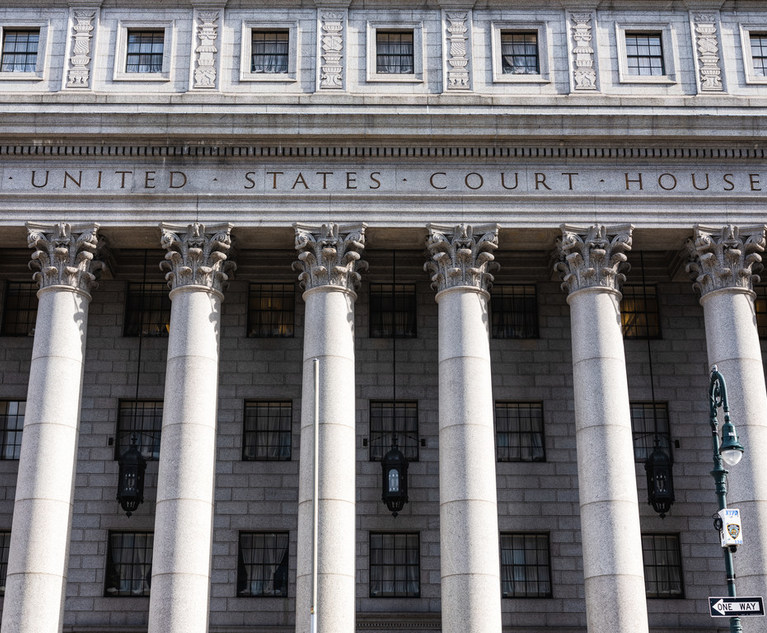Sean Topping

September 13, 2024 | New York Law Journal
Is Invasion of Privacy an Appropriate Analogue for Data Breach Cases?The authors examine whether invasion of privacy torts—intentional torts—are actually analogous to data breaches where claims sound in negligence and the alleged harm may be a risk of future identity theft, rather than embarrassment or other dignitary harms. The diverging approaches of lower courts in addressing this question suggests a struggle with applying historical tradition to these novel data privacy claims.
By Judith Archer, Sean Topping and Joe Hughes
8 minute read

June 24, 2024 | New York Law Journal
Who Holds the Power to Interpret Arbitration Agreements? SCOTUS Tests the Scope of 'Delegation" in Multi-Contract CasesWhen a party moves to compel arbitration, the first question for a court is: has arbitrability been delegated to the arbitrator? The U.S. Supreme Court recently clarified the scope of such delegation provisions in Coinbase v. Suski, discussed below.
By Victoria Corder, Sean Topping and Frank Joranko
8 minute read

May 22, 2024 | New York Law Journal
'Bohnak v. Marsh & McClennan': Mixing Standing and Damages in Data BreachesA discussion of the recent Second Circuit decision 'Bohnak v. Marsh & McLennan Companies, Inc.' The article evaluates its approach, presents the differences as applied in other circuits, identifies areas in New York state law where this would arguably conflict, and offers practical advice on defending a data breach case in New York in light of this case.
By Judith Archer, Sean Topping and Joe Hughes
8 minute read

April 13, 2023 | New York Law Journal
Litigants in Second Circuit May Soon Be Entitled To Automatically Stay Arbitration Pending AppealIn the event a court denies such a motion and the denial is appealed, a simple, yet surprisingly unresolved procedural question arises: Is the case automatically stayed pending appeal? This term, in 'Coinbase v Bielski', the U.S. Supreme Court will decide that issue for cases governed by the Federal Arbitration Act.
By Victoria Corder and Sean Topping
9 minute read
Trending Stories
- 1Class Action Settlements Totaled $40B+ Three Years in a Row: 'We’re in a New Era'
- 2Automaker Pleads Guilty and Agrees to $1.6 Billion in Payouts
- 3MLB's Texas Rangers Search For a New GC and a Broadcasting Deal
- 4Does the Treasury Hack Underscore a Big Problem for the Private Sector?
- 5Gen AI Legal Tech Startup Eve Raises $47 Million Series A Investment
More from ALM
- Scan In Progress: Litigators Leverage AI to Screen Prospective Jurors 1 minute read
- Legal Speak at General Counsel Conference East 2024: Match Group's Katie Dugan & Herrick's Carol Goodman 1 minute read
- Legal Speak at General Counsel Conference East 2024: Eric Wall, Executive VP, Syllo 1 minute read



